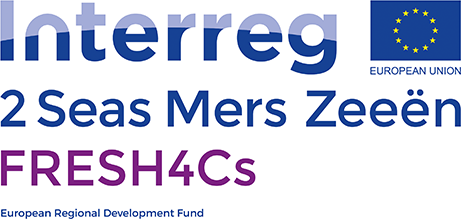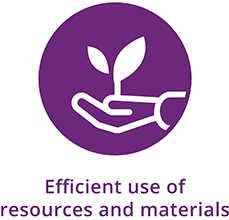Learn what FRESH4Cs is all about in 3 minutes!
What is FRESH4Cs?
FRESH4Cs is short for freshwater resources for seas or coastal regions. We are a cooperation project of 10 Belgian, Dutch and UK partners funded by the Interreg 2 Seas programme 2014-2020, co-funded by the European Regional Development Fund. This four year project (2019-2022) will demonstrate the provision of alternative and sustainable fresh water resources for lowland coastal regions.
Why FRESH4Cs?
Large quantities of fresh water are currently discarded and drained to the sea, meaning our most precious resource goes to waste. FRESH4Cs strives to cut back those losses by exploring and testing solutions for efficient water use in the coastal lowlands of Belgium, the Netherlands and the United Kingdom. The ultimate goal is that the different solutions provided will be adopted beyond our project consortium and result in the widespread use of alternative sustainable water resources.
How is FRESH4Cs realised?
During the project we set up 6 demo cases with the aim of providing alternative freshwater resources for farmers, industry, nature and drinking water production. The cases focus on technological aspects, but also on finding solutions for the non-technological barriers that impede further replication of our solutions.
The United Kingdom
- Advanced water management will provide fresh water through a piping and pumping network that will supply buffer basins for the water to be used by farmers.
- In the same area we are starting a managed aquifer recharged and abstraction demo (MAR) pilot.
Belgium
- The first demo case in Koksijde hosts nature based treatment of RO concentrate through a willow marsh. We will asses possible uses of this treated concentrate.
- A second demo near Kwetshage will test the possibilities for above ground and underground water storage in a polder. In first instance nature will benefit from this water resource, but possibilities to extend the technologies to farmers will be tested.
The Netherlands
- The demo case near Terneuzen will assess the feasibility of water storage in shallow aquifers (kreekruginfiltratie), and start a pilot demo at the most suited location. Water users are industry and agriculture.
- A second case near Kruiningen will assess the possibilities of storing effluent water of a food plant for use by nearby agriculture, again using above ground or subsoil (Kreekruginfiltratie) storage.





